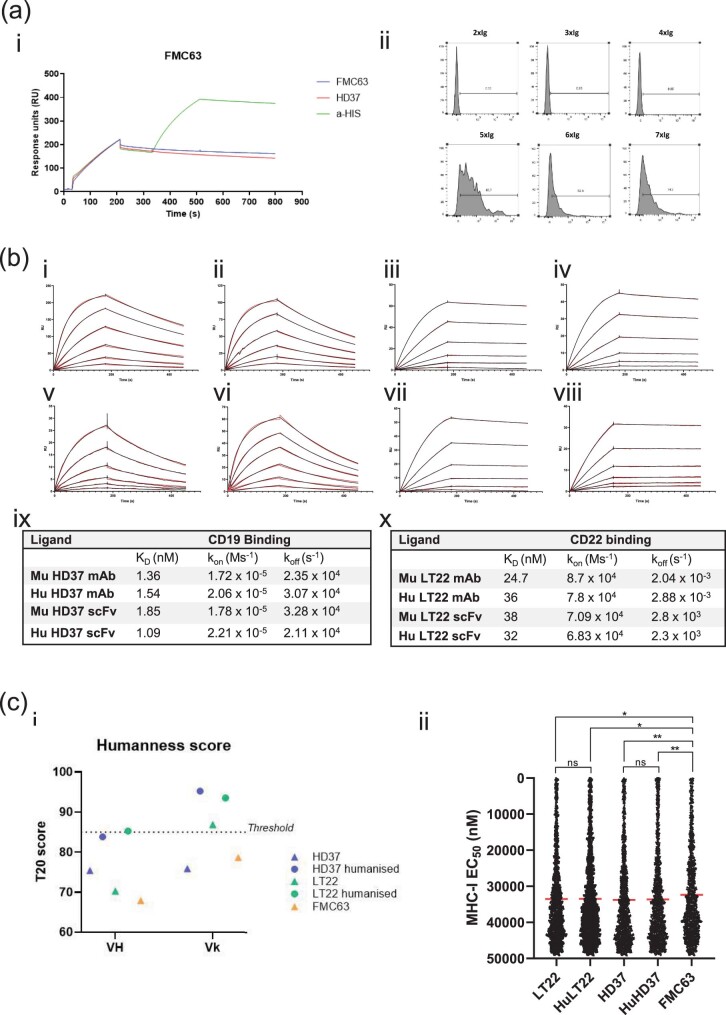Extended Data Fig. 1. Biophysical evaluation of the CD19 and CD22 binders.
a) Competition for binding to CD19 between scFv proteins. FMC63 was captured as the ligand and injections of recombinant CD19 followed by FMC63 scFv, HD37 scFv or anti-His tag Ab were used as analyte (i). HD37 did not show interaction with CD19 bound to FMC63, indicating a shared or overlapping epitope. As expected, FMC63 was also unable to bind CD19, while the anti-His recognised a distinct epitope at the C-term of CD19. (ii) Determination of CD22 antibody binding epitope. LT22 was tested against various truncated variants of CD22. Binding was observed upon expression of Ig domain 5 indicating that the antibody targets this region. b) Humanisation of CD19 and CD22 binding domains does not affect binding kinetics in Surface Plasmon Resonance assay. Binding of Murine LT22 mAb (i), Humanised LT22 mAb (ii), Murine LT22 scFv (iii) and HuLT22 scFv (iv) to CD22. Binding of Murine HD37 mAb (v), Humanised HD37 mAb (vi), Murine HD37 scFv (vii) and HuHD37 scFv (viii) to CD19. i-viii) Black = reference subtracted sensograms; Red = sensogram fit with 1:1 Langmuir binding model. (ix) binding kinetic values for murine and humanized anti-CD19 mAb and scFv for CD19. (x) binding kinetic values for murine and humanized anti-CD22 mAb and scFv. c) Antibody humanness T20 score for the VH and Vk sequence of HD37, humanised HD37, LT22, humanised LT22 and FMC63 (i). A score >85 is associated with a human sequence. Humanised HD37 and LT22 binders show improved scores, with values nearing or surpassing the humanness threshold. (ii) Prediction of Human MHC-I affinity (EC50) on HLA allele A*02:01 for scFv-derived peptides (8-14 aa). Red line = mean value of individual datasets. No significant average MHC-I affinity difference was determined for humanised HD37 (P = 0.3799) and LT22 (P = 0.9268) binders compared to their respective parental antibody (unpaired t-test). Significantly lower average MHC-I affinity was determined for both HD37 and LT22 (humanised and parental), compared to FMC63, suggesting reduced immunogenicity. One-way ANOVA (Dunnett post-test) *P = 0.0250 for FMC63 vs. LT22, *P = 0.0322 for FMC63 vs. HuLT22, **P = 0.0040 for FMC63 vs. HD37, **P = 0.0088 for FMC63 vs. HuHD37. Unpaired t test P = 0.9268 for LT22 vs. HuLT22 and P = 0.8150 for HD37 vs. HuHD37.

